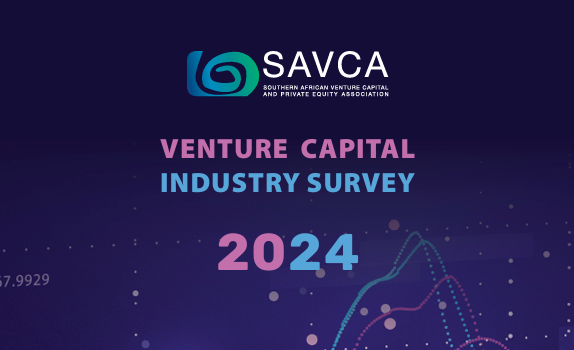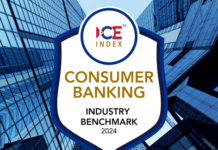2023 closed off on a positive note for the South African startup ecosystem. In a display of the level of resilience that has since become synonymous with the industry, the performance of the venture capital (VC) sector defied the downward trend in annual deals seen since 2020. Once again, the local information and communication technology (ICT) stole the show, capturing investor interest and reiterating the sector’s position as a frontrunner in economic development and innovation.
This was one of the key insights to emerge from this year’s SAVCA VC Survey Launch 2024 – a annual research initiative by the Southern African Venture Capital and Private Equity Association (SAVCA). The survey was launched last week at an event at the Westin hotel in Cape Town.
Speaking at the launch was SAVCA CEO, Tshepiso Kobile, who shared her ongoing conviction that the VC industry must continue to play a pivotal role in supporting high-growth startups and early-stage businesses, whilst also enabling innovative solutions to our unique challenges as a country. “When we launched this survey in 2010, we opened with the question: ‘is there opportunity for VC in South Africa?’
“The need to continuously reflect on this question and keep a close eye on the development of the sector is why research like the VC survey is so critical. Today, equipped with the most recent data, I am proud to answer that yes, VC is alive and on a positive trajectory in South Africa – both in terms of active and sizeable deals,” she said.
The state of VC in South Africa
This year saw total capital flow to startups reach over R3 billion for the first time since the launch of the survey 14 years ago. Holistically, since inception of the survey, the South African VC asset class had R10.73 billion invested in 1,106 active deals.
Activity by number of deals has remained stable, with a slight decrease in 2023 as the number of entities receiving funding slowed down, with more investments going into the same companies. Notwithstanding the decrease in number of deals in 2023 (184 compared to 195 in 2022 and 186 in 2021) deal activity remains higher than the pre-COVID levels of 162 in 2019 and 167 in 2020.
Commenting on this, Kobile stated that: “Across the continent, we have seen VC gain popularity as an investment strategy. Our economy depends on this sustained investment into our entrepreneurs and into innovative solutions that can help leapfrog South Africa into a more competitive and inclusive economy.”
Similar to the previous year, a noticeable feature was the growth in co-investment activity, demonstrative of corporations and foreign investors investing alongside early-stage fund managers.
ICT dominates capital flow
In line with the global trend for VC type investments, the ICT sector, which combines several active sub-sectors such as Fintech, EdTech, Software, eCommerce and Online Market, continued to outweigh the investment activity in other sectors. ICT as a primary sector almost doubled in number of investments compared to 2022, amounting to 87.6% (48.1% in 2022).
Fintech remained the front-runner by value (18.3%) and number (14.8%) of deals, followed by Software at 9.8% of the total number of deals (6.7% by deal value). eCommerce made a significant jump from 2022 levels – a testament to the continued uptick in online shopping that was seen and rapidly developed during and after the pandemic years.
An expanding and diversifying fund management pool
In terms of the types of fund managers engaging in active deals, independent funds led the charge in 2023 at 66.2% of the total number of deals in the active portfolio of VC investments – up from 61.8% in 2022 and 57.8% in 2021.
This was followed by captive corporates at 34.3%, with angel investors making up a small proportion of active deals at 7.1%. Interestingly however, the average deal size of VC transactions by angel investors amounted to R6.15 million – a relatively large value when compared to the average deal size coming from independent funds, which currently equates to R7.47 million.
Weighing in on these findings was Stephan Lamprecht, the Founder of VS Nova, SAVCA’s long-standing research partner, who echoed Kobile’s assertions that research of this nature plays a vital role in informing all stakeholders on the progress of the industry. “The results of the survey clearly show how far VC has come over the last decade. Lamprecht highlighted that accurate data particularly helps inform VC industry leaders when considering and implementing initiatives that can potentially play a significantly larger role in the transformation of the economy, allowing many more startups to grow into global icons.
“In 2014, the industry saw a total investment of R273 million. Now – 10 years later, we’re seeing a total investment of R3.28 billion, which is a significant upward curve.
“This kind of data allows us to continue answering the important question of whether VC capital is available to entrepreneurs in South Africa. The answer is definitely yes, but in terms of the number of businesses receiving capital which sat at 94 in 2023, there is still much work to be done,” he said.
A new feature in the 2024 survey was a look at the composition of Funds Under Management and teams, depicting that 70.8% of respondents reported being rated B-BBEE Level 4 or higher, notwithstanding the very lean investment teams (average team size of five or less professionals), One in five of the respondents had a female CEO, and 41.7% of the respondents had at least one black founder.
Regulatory reforms a critical piece of the puzzle
Providing her thoughts on the way forward for the industry, Kobile stated that advocacy for an enabling regulatory environment for high growth startups will continue to be imperative to building a stronger ecosystem and a core part of SAVCA’s efforts.
To this point, Safeera Mayet, Head of Policy and Regulatory Affairs at SAVCA, referenced the ongoing work being done through the proposed South Africa Startup Act – a movement geared towards supporting the growth of the country’s entrepreneurship ecosystem by encouraging the development of policies that will benefit high growth startup entrepreneurs.
As she concluded: “SAVCA has been at the forefront of engagements with government to create the most enabling working environment in which VCs can thrive and operate. The most significant development of late has been the implementation of the Remote Work Visa which allows individuals employed by foreign companies to work remotely in South Africa. This legislation will go a long way towards driving growth and innovation, as well as allowing foreign workers to impart and share knowledge through their interactions with South Africans.
“The next priority on the list is the South African Reserve Bank exchange control regulations that apply to technology and telecommunications (TMT) companies. In essence, SAVCA and its partners have been paramount in call for relaxing of exchange controls in order to attract foreign investment into TMT companies and to grow the capital base available for VCs. That engagement will continue, and we have high hopes that we can inform these and other regulatory reforms to help minimize any unintended consequences and ensure constructive direction.”
The full report is available here: https://savca.co.za/wp-content/uploads/2024/07/SAVCA-VC-Survey-2024-Digital.pdf
Article Provided




























